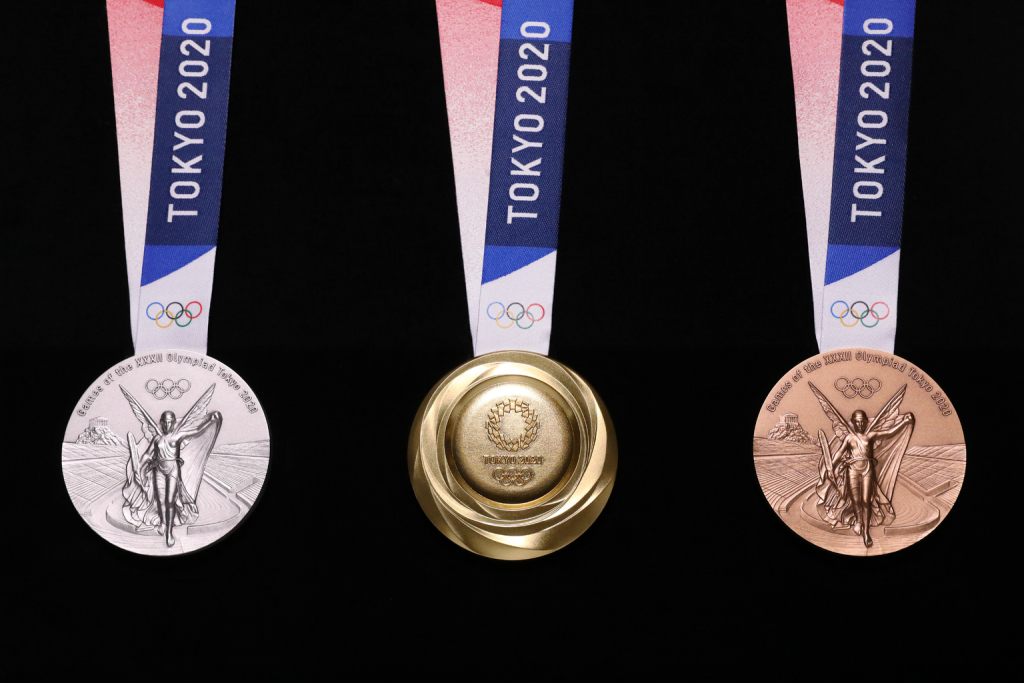After years of mining recycled electronics equipment for precious metals, the Tokyo Organising Committee of the Olympic and Paralympic Games revealed the designs of the Tokyo 2020 Olympic medals exactly one year before the commencement of next summer’s Olympic Games.
The medals were designed by Junichi Kawanishi, founder of Osaka-based sign company SIGNSPLAN, and director with both the Japan Sign Design Association and USD-O (Osaka Design Society). After graduating from Osaka Art University in 1992, Kawanishi continued drawing and exhibiting paintings while working as an assistant at the space design office of the university. He says he stopped drawing following the death of his father in the 1995 Great Hanshin Earthquake and decided to take up design instead.
“It is a great honor that my design was selected for the Tokyo 2020 Olympic medal,” Kawanishi said in a released statement. “I never dreamed that the design I submitted only as a memorial to this lifetime event would be actually selected. With their shining rings, I hope the medals will be seen as paying tribute to the athletes’ efforts, reflecting their glory and symbolizing friendship.”
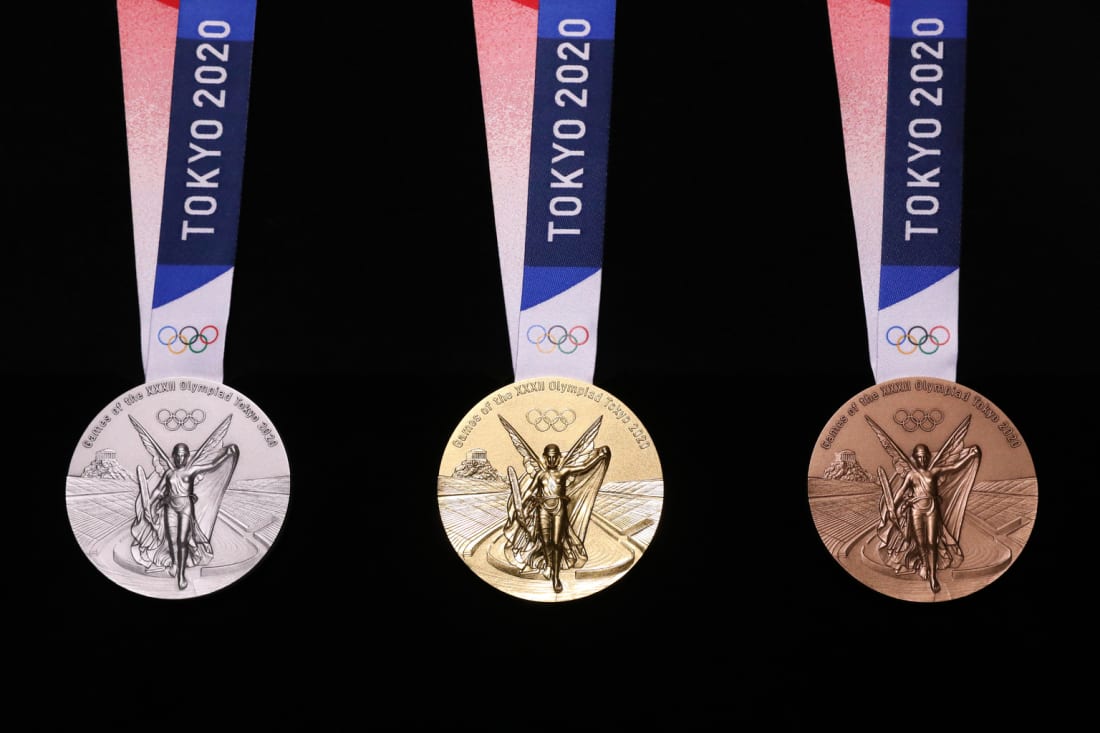
Courtesy of Tokyo 2020
Themes of Light and Brilliance
The medals, which collect and reflect myriad patterns of light, resemble rough stones that have been polished and which now shine. Their design is intended to symbolize diversity and represent a world where people who compete in sports and work hard are honored.
To select the final design, Tokyo 2020 held a competition open to professional designers and design students which attracted more than 400 entries. These were subsequently reviewed by members of a selection panel and the winning designs chosen by them.
International Olympic Committee regulations stipulate that medal designs should include Nike, the Greek goddess of victory, in front of the Panathinaikos Stadium; the official name of the respective Games, in this case the Olympic Games Tokyo 2020, and the Olympic five rings symbol.
“I am convinced that Japanese metal-moulding techniques and the superb design have combined well, and that we have the best medal in the world,” said Ryohei Miyata, chairperson of the Tokyo 2020 medal design selection panel. “It makes me want to strive for a medal myself.”
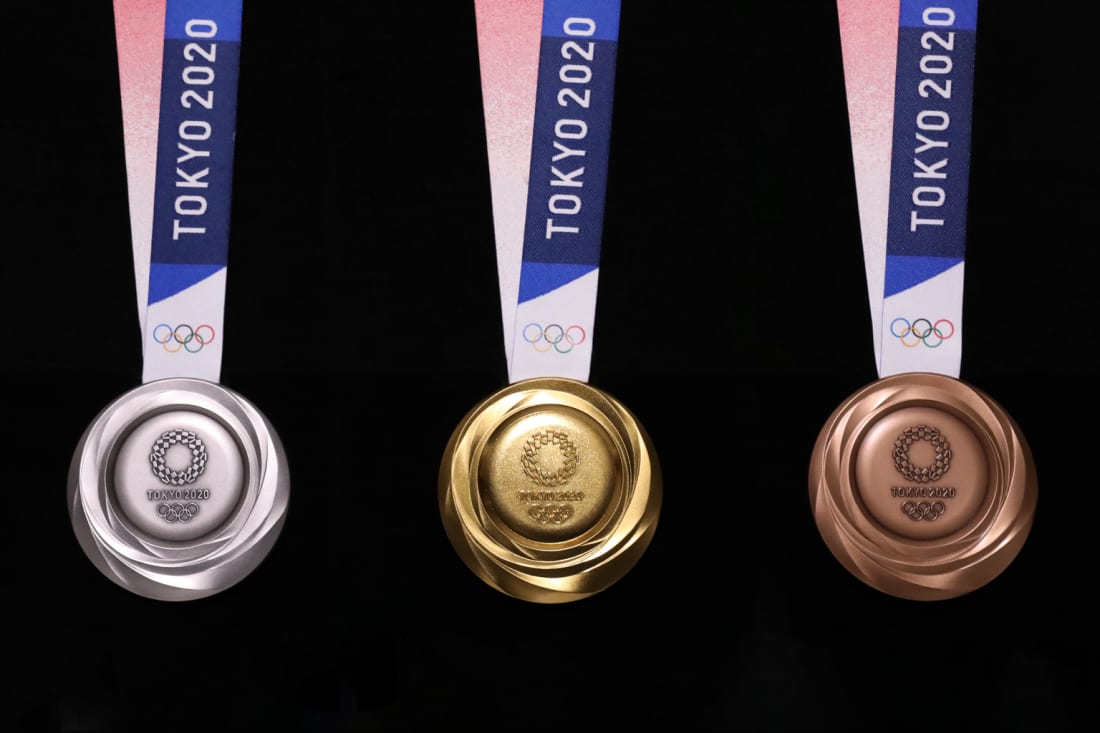
Courtesy of Tokyo 2020
Smartphones Recycled as Olympic Gold
In an effort to make the 2020 Olympic and Paralympic Games more environmentally friendly, the Japanese government and the Japanese Environmental Sanitation Center launched an initiative with the aim to fabricate the gold, silver, and bronze medals using recycled electronic devices. It was announced earlier this month that sufficient gold, silver and bronze for the manufacture of all 5,000 Tokyo 2020 medals has been collected.
From April 2017 until March 2019 more than 78,985 tons of used mobile phones and other small electronic devices were collected by municipal authorities, with a total of 6.21 million used mobile phones handed in at collection centers in about 2,300 NTT DOCOMO shops. Altogether these yielded 32 kg of gold, 3,500 kg of silver and 2,200 kg of bronze.
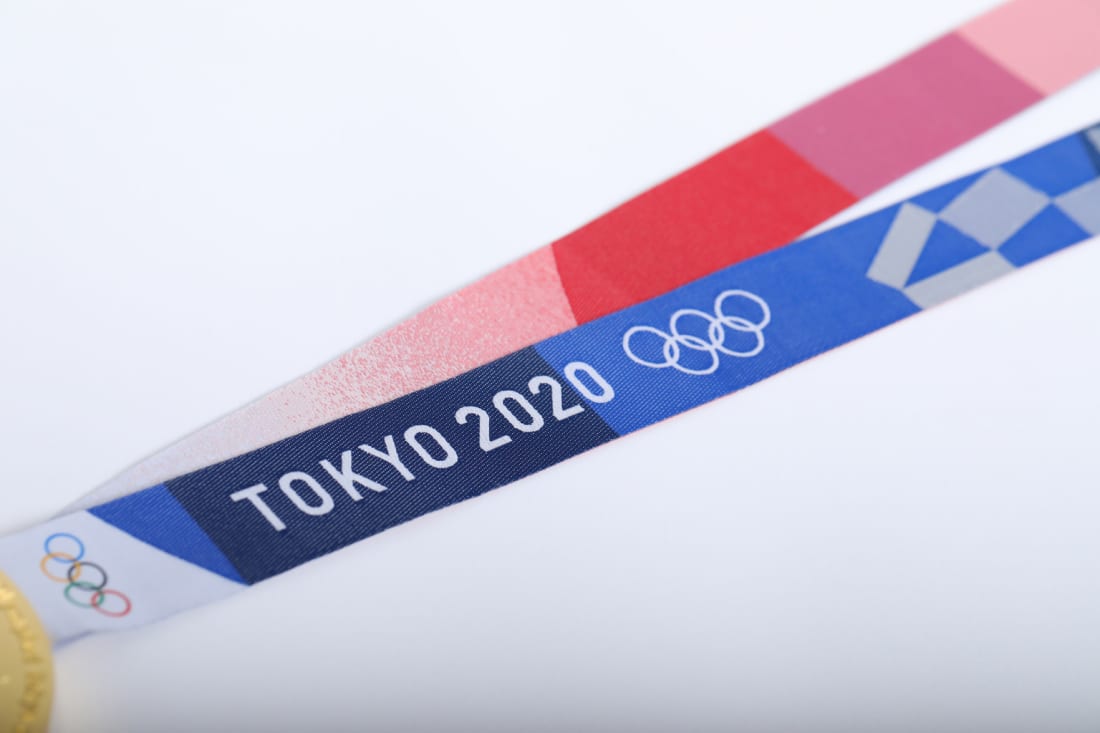
Courtesy of Tokyo 2020
Victory Ribbons
As for the victory medal ribbon, the design will employ the traditional Japanese motifs found in ichimatsu moyo (harmonized checkered patterns) and kasane no irome (traditional kimono layering techniques) in a modern presentation. Silicone convex lines are applied on the surface of the ribbon so that anyone can recognize the type of medal (gold, silver or bronze) by simply touching it.
Chemically recycled polyester fibers that produce less CO2 during their manufacturing process are used, allowing the ribbons to incorporate the Tokyo 2020 core graphic colors and to be durable at the same time.
Each of the Tokyo 2020 medal cases, manufactured from Japanese ash wood dyed with the same color as the Olympic emblem, will be made by Japanese craftsmen using a blend of traditional and modern techniques. Each medal case is distinct and has its own wood fiber pattern subtly infused into the design.
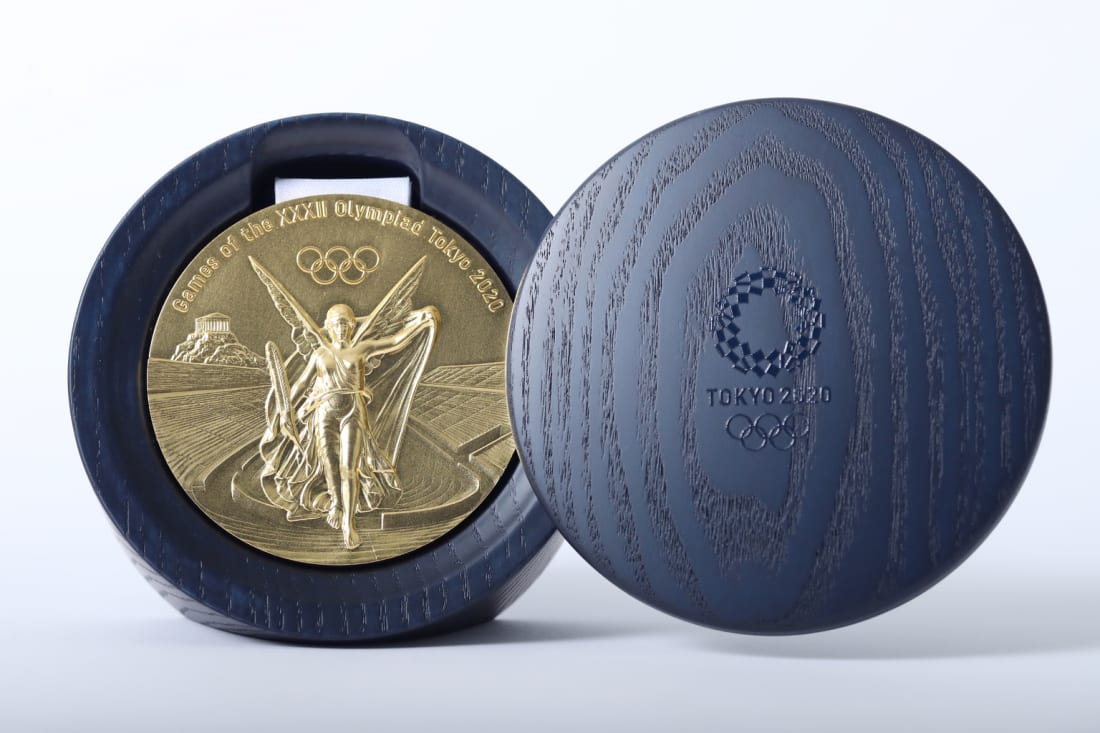
Courtesy of Tokyo 2020
Environmental Themes Continue
Tokyo 2020 will continue to promote recycling and the concept of a circular economy in Japan as a legacy of the Tokyo 2020 Games by calling on business owners, local governments and the people living in Japan to continue donating and collecting small used household appliances. It is planned that the metals recovered from these will be re-used for community purposes, including creation of medals for local sports events across Japan.
Tokyo 2020 is also planning to recycle household plastic waste and marine plastic waste and use them in the creation of podiums for medal ceremonies. Moreover, the Tokyo 2020 Olympic torch relay uniforms will be produced in part using recycled plastic bottles.

